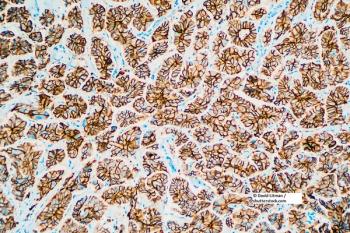
T-DXd demonstrated improved and durable response rates in heavily pretreated patients with advanced HER2-positive breast cancer.

Your AI-Trained Oncology Knowledge Connection!


Kristie L. Kahl is vice president of content at MJH Life Sciences, overseeing CURE®, CancerNetwork®, the journal ONCOLOGY, Targeted Oncology, and Urology Times®. She has been with the company since November 2017.
She is a graduate of Rider University, where she acquired a Bachelors of Art in journalism, as well as a graduate of Temple University, where she received her Masters of Science in Sports Management.
Follow Kristie on Twitter at @KristieLKahl, or email her at kkahl@mjhlifesciences.com.

T-DXd demonstrated improved and durable response rates in heavily pretreated patients with advanced HER2-positive breast cancer.

The addition of pertuzumab to the previous standard of trastuzumab plus chemotherapy as an adjuvant therapy for patients with operable HER2-positive early breast cancer continued to reduce the risk for recurrence and death during a 6-year updated analysis.

Adjuvant therapy with S-1, an oral fluoropyrimidine-based drug, plus endocrine therapy postoperatively significantly increased invasive disease-free survival (IDFS) in patients with HR-positive, HER2-negative breast cancer.
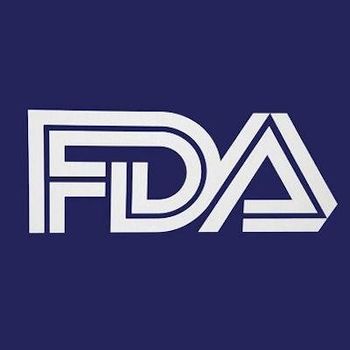
The Food and Drug Administration approved the first generic for everolimus, which can provide a safe, effective, lower cost alternative to the brand-name drug it references.

The combination use of polatuzumab-vedotin, obinutuzumab, and lenalidomide showed high complete response rates in patients with relapsed/refractory follicular lymphoma.

The FDA approved atezolizumab in combination with chemotherapy for the first-line treatment of adults with metastatic non-squamous non-small cell lung cancer with no EGFR or ALK genomic tumor aberrations.

The FDA granted a breakthrough therapy designation to abatacept for the prevention of moderate to severe acute graft-versus-host disease in hematopoietic stem cell transplants from unrelated donors.
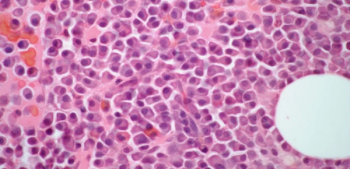
Sham Mailankody, MBBS, discussed the challenge of determining an optimal sequence of treatments in patients with relapsed/refractory multiple myeloma, and how head-to-head studies can help.

The FDA has granted a priority review to a new drug application for pemigatinib as a treatment for patients with previously treated, locally advanced or metastatic cholangiocarcinoma with FGFR2 fusions or rearrangements.

The FDA accepted a supplemental biologics license application and granted a priority review to durvalumab for the treatment of patients with previously untreated extensive-stage small cell lung cancer.

A new gene mutation, DUOX2, may cause a type of familial thyroid cancer, according to study results published in Cancer Research.

Robert A. Brodsky, MD discussed the study of a first-of-kind multi-antigen targeted off-the-shelf chimeric antigen receptor- natural killer cell therapy with engineered persistence that will be presented at the ASH Annual Meeting & Exposition.
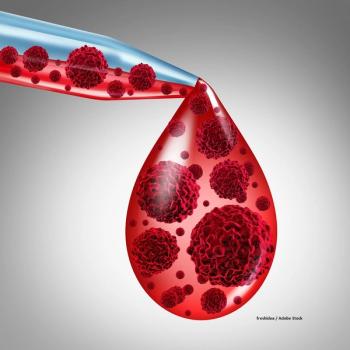
Research on chimeric antigen receptor T-cell therapy to be presented at the ASH Annual Meeting & Exposition is set to address drawbacks associated with treatment.
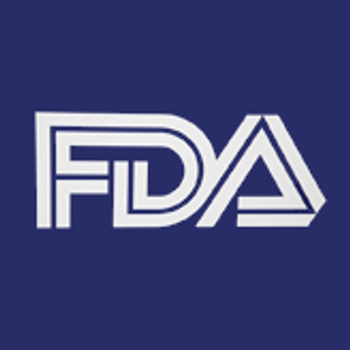
As part of Project Orbis, The FDA has approved acalabrutinib for the treatment of adult patients with chronic lymphocytic leukemia or small lymphocytic lymphoma.

The FDA granted accelerated approval to zanubrutinib for the treatment of adult patients with MCL who have received at least 1 prior therapy.

Overcoming resistance and determining better treatment plans that address the underlying disease biology of mantle cell lymphoma.
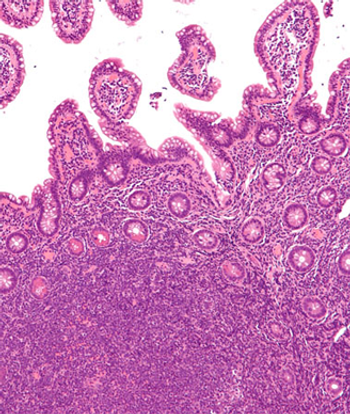
Researchers have opened an expansion cohort to include patients with mantle cell lymphoma in the phase I/II CIRLL study to determine if adding cirmtuzumab to ibrutinib can increase the rate of complete remissions.
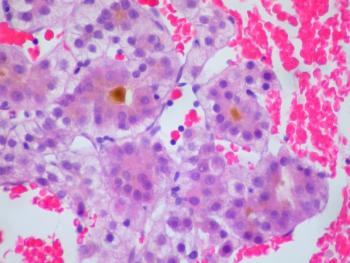
The FDA has accepted the supplemental biologics license application and granted breakthrough therapy designation to nivolumab plus ipilimumab for the treatment of patients with advanced hepatocellular carcinoma previously treated with sorafenib.

Biosimilars have shown to be cost-effective treatments in oncology and hematology, according to Jacopo Giuliani, MD.
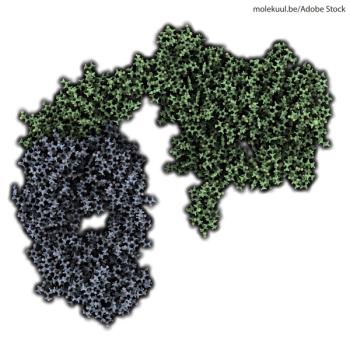
MCLA-128 showed radiological and clinical responses in patients with certain types of cancer who harbored neuregulin 1 gene fusions.

Treatment with trastuzumab emtansine demonstrated similar overall survival across 3 treatment arms of patients with HER2‐positive metastatic breast cancer.

The agency approved the first and only FDA-approved erythroid maturation agent to treat anemia in adult patients with beta thalassemia who require regular red blood cell transfusions.

The FDA approved a biosimilar to pegfilgrastim, called LA-EP2006 to decrease the incidence of infection, exhibited from febrile neutropenia, in patients with nonmyeloid malignancies receiving myelosuppressive anti-cancer therapy that is associated with a clinically significant incidence of febrile neutropenia.

The National Comprehensive Cancer Network recently issued new guidelines on best practices in evaluating patients for hematopoietic cell transplantation, as well as how to manage complications associated with the procedure.

While there have been increases in the amount of thyroid cancer cases detected, there is still work for oncologists to do – namely to ensure there is adequate evaluation of the disease at diagnosis.

Treatment with gilteritinib improved survival and increased remission rates, compared with salvage chemotherapy, among patients with relapsed or refractory FLT3-mutated acute myeloid leukemia.
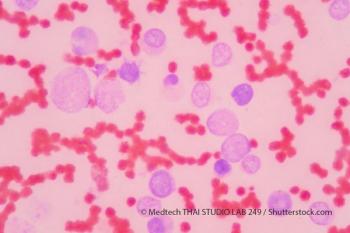
Treatment with SY-1425 in combination with azacitidine induced a 62% complete response rate with incomplete blood count recovery rate among unfit patients with RARA-positive AML.

A recent Danish study showed pregnancy loss was not associated with later cancer development among women with various cancer types.

Treatment with umbralisib monotherapy demonstrated improved overall response rates among patients with follicular lymphoma.